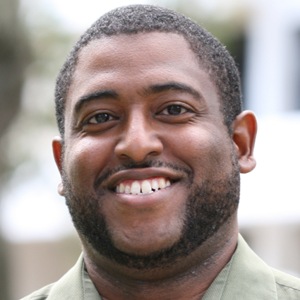My name is Will Tyson, associate professor of sociology at the University of South Florida. I am also principal investigator of PathTech (“Successful Academic and Employment Pathways in Advanced Technologies” [NSF #1104214]), an NSF ATE targeted research project aimed at better understanding pathways into technician education and into the workforce. In this post, I describe effective models through which ATE projects and centers can develop targeted research partnerships with STEM education researchers.
Personnel from 2-year and 4-year institutions bring different expertise to the table, but there is great potential for mutually beneficial partnerships built around the desire to learn more about student pathways and student outcomes. Within ATE, centers and projects are typically led by educators and practitioners with expertise in program development, curricular development, and professional development within their areas of technical expertise and technician education. Targeted research in technician education projects are led by STEM education researchers with backgrounds in social science and education interested in learning more about student pathways and outcomes while placing their experiences in a broader social context. What we do is very different, but our goals are the same.
When I discuss my research with ATE grantees and other stakeholders in K-12 education, community colleges, and local industry I get the same revealing responses: “NSF always wants to know about student outcomes, but we don’t really know how to do the research” and “We didn’t know there were people like you out there who did this research.” On the other hand, experienced NSF grantees who conduct research in K-12 education and/or four-year universities often know little about the “T” in STEM in community colleges and work being done through ATE Centers and Projects. Developing ways to bridge knowledge gaps between practitioners and researchers is necessary to increase our understanding of the processes of technician education.
PathTech is a partnership between social science and education researchers at the University of South Florida and the Florida Advanced Technological Education Center (FLATE), an NSF-ATE regional center of excellence. Such a partnership is both mandated by the ATE program solicitation and necessary to conduct high-impact research that can effectively be put into practice. This collaboration is an essential element of the PathTech research model, along with the proactive and enthusiastic participation of our community college, high school, and industry partners.
Through this multifaceted, interdisciplinary collaboration, we have been able to create a regional scale model that allows for the organic development of research objectives driven by the experiences and needs of college personnel as well as theory and scholarship. This is the foundation whereby knowledge is constructed and produced through interface and interaction with those experiencing technician educational and occupational pathways as administrators, teachers, students, employers, and policymakers. Most importantly, this collaboration also allows us to develop a mechanism for real-time dissemination of emerging findings and developing knowledge, thus allowing all parties to benefit from the research.

Except where noted, all content on this website is licensed under a Creative Commons Attribution-NonCommercial-ShareAlike 4.0 International License.






 EvaluATE is supported by the National Science Foundation under grant number 1841783. Any opinions, findings, and conclusions or recommendations expressed on this site are those of the authors and do not necessarily reflect the views of the National Science Foundation.
EvaluATE is supported by the National Science Foundation under grant number 1841783. Any opinions, findings, and conclusions or recommendations expressed on this site are those of the authors and do not necessarily reflect the views of the National Science Foundation.